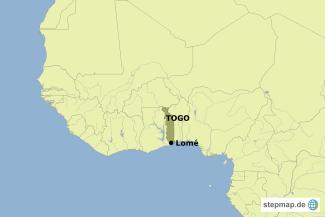Borders
Extorting travellers

According to the law, citizens of member countries of the Economic Community of West African States (ECOWAS) have the right to travel and reside in any other member country for up to 90 days, without being subjected to any form of harassment. Nor must they pay for a residential permit. Travellers just need valid travel documents and an international health certificate. However, the practice on the ground can be quite different.
A Togolese student who lives in Ghana complains that he must bribe Ghanaian officers every time he crosses the border: “Whether you have valid papers or not, you have to pay 1000 CFA francs.” That is the equivalent of € 1.50.
A local luggage carrier’s assessment is less damning. He says the officers “sometimes” require regular travellers to pay.
Similar complaints are made in regard to Togo’s border posts. “It’s an organised mafia. They report to their bosses,” says a Nigerian trader.
In theory, the borders are open to people with documents and closed to those without. In practice, people without proper papers are simply forced to pay bribes. Sums range from 300 CFA francs to 1000 CFA francs. They may seem small, but to the low-income people in this world region, they are substantial. Some people, moreover, have to pay them often. “The cops collect more than 1000F CFA francs per day,” complains an illiterate Beninese merchant who crosses the border every day. “I cannot get an identity card, because I don’t have a birth certificate.” The man sells smoked fish at a market in Lomé. This city is close to the border and Togo’s capital.
In Benin, health officers facilitate travelling on for similar sums. A local entrepreneur states: “They do not even check if the vaccination cards are up-to-date, they only want our money.” He reports that he once demanded a receipt, but was simply told: “Keep going, if you don’t want to get in trouble.”
Border-crossings in return for cash are serious business. “This illegal cash flow escapes the public treasures of the concerned states,” says Bassir Talaki, a public tax consultant in Togo.
“Thousands of travellers cross the border each day,” he says, “Where does all this money go?”
Link
ECOWAS – free movement of persons
https://www.uneca.org/pages/ecowas-free-movement-persons
Ibrahim Ored’Ola Falola is a journalist and lives in Lomé, Togo.
ibfall2007@yahoo.co.uk







